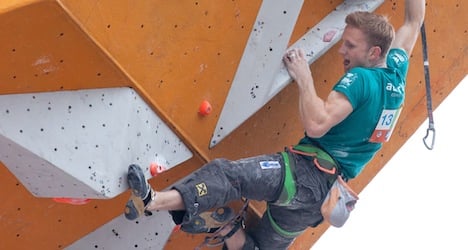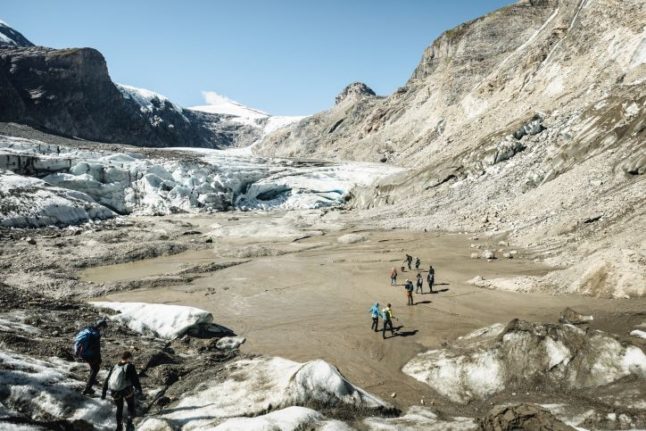SPORT
Austrian climbers stun Chamonix competition
Two Austrian competitive climbers have shown their form by scoring a double silver in competition in the French alpine resort of Chamonix, on the slopes of Mont Blanc.
Published: 14 July 2014 15:25 CEST

Jakob Schubert climbing in Chamonix. Photo: ÖWK/Heiko Wilhelm
Current World Champion climber, the Austrian Jakob Schubert showed that he was in great climbing form by earning a silver medal.
His team mate Magdalena Roeck also excelled with a silver in her competition, which is the season opener for 2014.
"I am very happy with my race here in Chamonix. The routes were tough and demanding; we were really challenged. And now I have for my second World Cup after injury 180 points on the board – a cool thing," said Jakob Schubert after the event.
These 180 points mean Schubert has the lead in the overall climbing World Cup standings after two eight-lead climbing competitions.
In the women's competition, Magdalena Roeck took second place (160 points) behind the two-time winner Jain Kim from Korea (200 points). Her first World Cup victory seems to be only a matter of time for the Junior World Champion.
The competition circuit this year will take the climbers back to Austria in August, then on to Italy, Korea, China, Japan and Slovenia.
Url copied to clipboard!


 Please whitelist us to continue reading.
Please whitelist us to continue reading.
Member comments